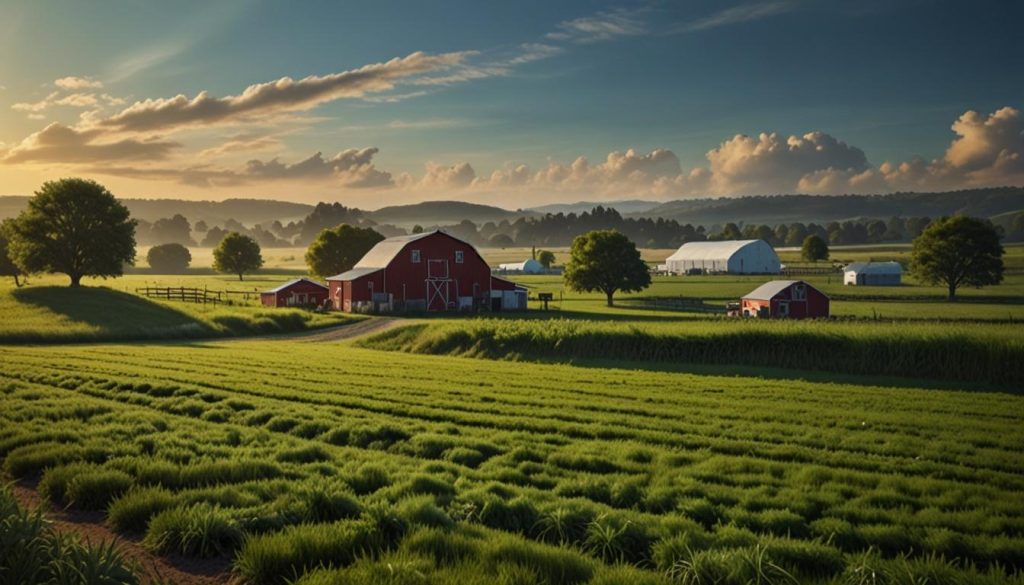The National Farmers’ Union’s goal to achieve zero greenhouse gas emissions by 2040 is at risk due to inadequate government policies and increasing scrutiny of the meat and dairy industry’s environmental impact.
In 2019, the National Farmers’ Union (NFU) in the UK committed to reducing greenhouse gas emissions in the agricultural sector to zero by 2040. However, NFU president Tom Bradshaw recently expressed concerns about achieving this target, citing a lack of coordinated government policy over the past five years. The independent advisory Climate Change Committee’s annual report echoed these concerns, highlighting insufficient progress and policies, particularly concerning tree planting and peatland restoration.
The NFU’s strategy to achieve net-zero emissions includes efficient food production, tree planting, soil management, improving animal health, and growing energy crops. Bradshaw emphasized the need for a coordinated government approach to reach these goals.
Simultaneously, the meat and dairy industry faces criticism in a new report by the Changing Markets Foundation, which accuses major companies of hindering global climate action through misleading science and PR campaigns. The report identifies companies like Danish Crown, Tyson Foods, JBS, Fonterra, and Nestlé using tactics to downplay their environmental impact.
Moreover, New Zealand’s plan to reach net-zero emissions by 2050 may falter due to recent policy changes and extended operation agreements for high-emission facilities like the Tiwai Point aluminum smelter. The coalition government’s draft emissions reduction plan indicates the country might miss its long-term goal, despite meeting short-term budgets. Climate Minister Simon Watts emphasized a “technology-led approach” while the strategy faces criticism from scientists who argue it relies too much on undeveloped technologies and offsetting rather than direct emission reductions.


